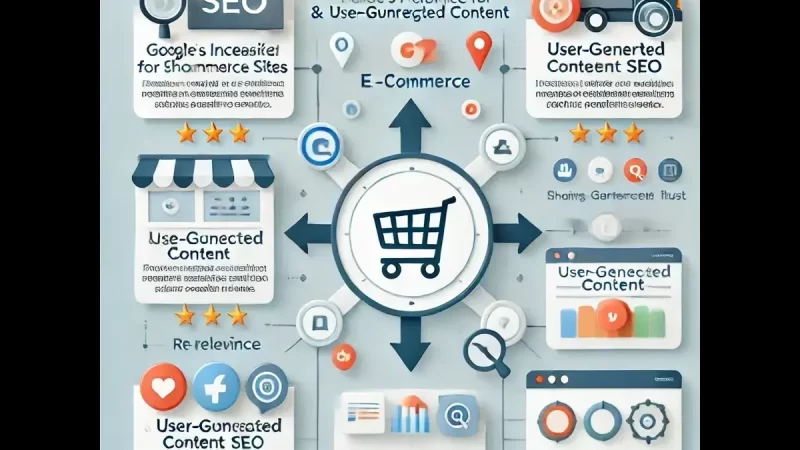Everything You Need to Know About Thin Affiliate Pages: A Simple Guide

What Are Thin Affiliate Pages?
Thin affiliate pages are web pages that exist primarily to promote affiliate products without offering substantial value or unique content to visitors. These pages typically have minimal original content and rely heavily on links to products or services from which the site owner earns a commission when visitors make a purchase.
Why Are Thin Affiliate Pages a Problem?
- Poor User Experience: Visitors to thin affiliate pages often find little to no useful information, which can lead to frustration and a lack of trust in the website.
- SEO Penalties: Search engines like Google prioritize high-quality, informative content. Thin affiliate pages can be seen as spammy or low-quality, leading to lower rankings or even penalties.
- Lower Conversion Rates: Without valuable content to engage and inform visitors, these pages tend to have lower conversion rates, meaning fewer sales and commissions.
How to Identify Thin Affiliate Pages?
Thin affiliate pages typically have these characteristics:
- Lack of Original Content: The content is either copied from other sites or is very shallow, offering little to no unique insights or information.
- High Density of Affiliate Links: The page is filled with affiliate links, often more than genuine content.
- Poorly Structured Content: The layout and structure of the page are often haphazard, with little attention to user experience.
How to Avoid Creating Thin Affiliate Pages?
Creating valuable, content-rich affiliate pages requires effort and focus on quality. Here are some tips:
- Provide Valuable Information: Offer detailed, well-researched content that genuinely helps your visitors. This can include product reviews, comparisons, tutorials, and in-depth guides.
- Use Original Content: Ensure that the content on your pages is unique and not simply copied from other sources. Original content is more likely to engage readers and rank well in search engines.
- Balance Content and Links: While it’s important to include affiliate links, they should complement your content, not overshadow it. Make sure your content stands on its own merit.
- Improve User Experience: Organize your content in a user-friendly way with clear headings, subheadings, and bullet points. Use images and videos where appropriate to enhance understanding.
Examples of High-Quality Affiliate Pages
Here are some elements that make up a high-quality affiliate page:
- In-Depth Reviews: Write comprehensive reviews of products, including pros and cons, detailed features, and personal insights.
- Comparative Analysis: Create comparison charts or articles that help users decide between similar products based on various factors like price, features, and user reviews.
- How-To Guides: Develop guides that show users how to use the products you’re promoting. This adds significant value and positions you as an expert in your niche.
- User Testimonials and Case Studies: Include real-life examples and testimonials from users who have benefited from the products you’re promoting.
Benefits of High-Quality Affiliate Pages
By focusing on creating high-quality content, you can reap several benefits:
- Better SEO Performance: Search engines reward websites that offer valuable content, leading to higher rankings and more organic traffic.
- Increased Trust and Authority: When visitors find your content helpful and trustworthy, they are more likely to return to your site and recommend it to others.
- Higher Conversion Rates: Valuable content engages visitors, increases their trust in your recommendations, and ultimately leads to more sales and commissions.
Avoiding thin affiliate pages is crucial for the success of your website. By focusing on creating valuable, original content and improving the user experience, you can enhance your SEO performance, build trust with your audience, and increase your affiliate commissions. Remember, the key is to prioritize your visitors’ needs and provide them with the information they are looking for.
Frequently Asked Questions (FAQs):
Thin affiliate pages are web pages created primarily to promote affiliate products or services. They typically contain minimal original content and focus heavily on affiliate links.
Thin affiliate pages can harm your website’s SEO in several ways. They often provide little value to users, leading to lower engagement and higher bounce rates. Additionally, search engines may penalize sites with thin content, resulting in lower rankings or even removal from search results.
No, not all affiliate pages are considered thin. High-quality affiliate pages provide valuable content to users, such as in-depth product reviews, comparison guides, or tutorials. Thin affiliate pages, on the other hand, lack substantive content and primarily exist to drive affiliate sales.
Look for signs such as shallow or copied content, an excessive number of affiliate links, and a lack of user engagement. Thin affiliate pages often have poor user experience and fail to offer unique insights or information.
The risks include lower search engine rankings, reduced trust and credibility with users, and potentially being penalized by search engines. Thin affiliate pages can also result in lower conversion rates and ultimately harm your revenue and business goals.






